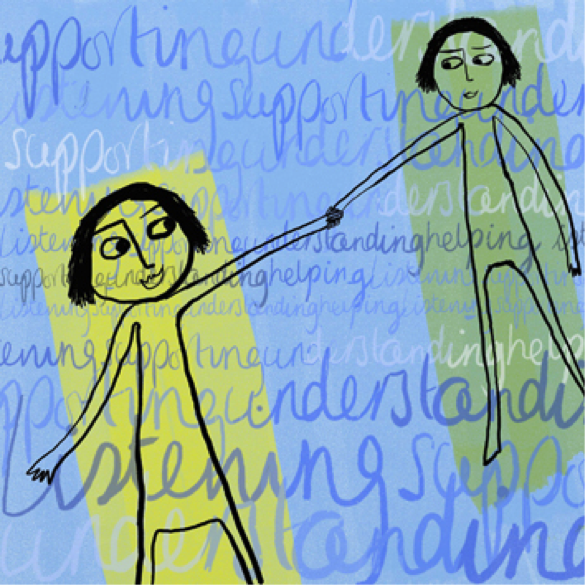
As the name suggests, the role of a Peer Support Worker is best done by someone with experience in the client’s particular ailment. Be this addiction, alcoholism or mental illness it is important that the Peer knows what they are talking about and has the empathetic nature to listen to the client. The Peer must also be approachable, there is no point even going into this line of work if you do not have the people skills to get people to talk to you.
The Peer must also be able to respect the choices the client makes, even if they seem wrong to the Peer at the time, as people only really ever learn from their own experience. I have already mentioned that a Peer should have good listening skills but they should also have a good memory. There is nothing more annoying to people than having to repeat the same information time and time again and if this happens the probability of losing the client completely rises significantly. The Peer must also be friendly but at the same time know when they are getting too involved and be able to back up a little without the client losing all confidence in the worker.
A good Peer Support Worker will not do the clients work for them but will make the client believe that they can do it and offer praise with each accomplishment along the way. It is often believed that a Peer Worker should be a role model to their clients and yes, to a point, I agree but a good Peer Worker will see themselves as the lower end of the bar, they have to stay humble and remember who they are and where they have been. This in turn helps to lessen the chances of the worker relapsing.
I have left the most important thing in my mind till last. A good Peer Support Worker has to know when their job is done and their client is ready to move on. If someone breaks their leg they get a plaster cast and crutches. When someone is broken inside by one of these illnesses the Peer Worker becomes the crutches. Their job with the client will not go on forever but leave too soon the client could relapse, stay too long and the client may well become dependent on the Peer. This I believe is the hardest part of the job of being a Peer Worker.
